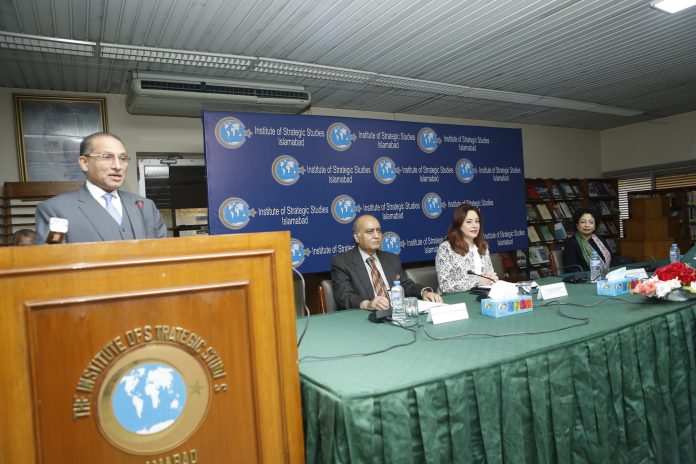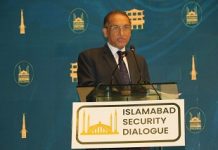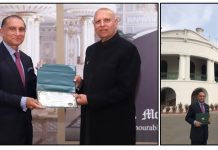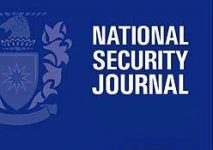Remarks by the Director General to welcome UN PGA
22 January 2019
Your Excellency, Ms Maria Fernanda Espionosa, May I extend to you a warm welcome on behalf of the Institute to this morning’s interaction with students, academia, research fellows and others. As the president of the United Nations General Assembly for this year, you are shouldering an onerous responsibility. We are pleased to see your proactive approach to reach out to the membership of the United Nations family.
Your country Ecuador is a beautiful place and I had the privilege to travel through it from north to south. The variety of landscape from quito to quayaqil, to Loja and of course the huge variety of bananas that your country produces impressed me.
May I also extend a warm welcome to Dr Maleeha Lodhi, our permanent representative in the United Nations. Dr Lodhi and I have worked together in my previous capacity and I have always found her to be a determined and insightful professional. She is doing a commendable work for our country.
I am also grateful to UN division of the Foreign Ministry, which made this interaction possible, especially the Division head Mr. Khalil Hashmi, with whom also I have spent many wonderful years, both in New York and here in Islamabad.
My profound thanks to all of you for coming to this morning’s event. We hope that you would find this session useful for your respective pursuits.
Madam President, the world today has changed in several ways, much more rapidly than I had ever imagined. During the nineties, when the Cold War ended, a golden era of globalization set in. We saw the United Nations playing a central role in forging a global socio-economic normative framework. The mega conferences on children, women, population, habitat, environment, social development, and human rights and their five and ten yearly reviews were an enormous contribution that the United Nations made to the humanity.
However, since 9/11, all this seems to have changed. Narrow nationalism is raising its head. Immigration is considered a threat. Xenophobia is undermining peaceful coexistence. Free trade is under severe pressure from protectionist trends. Strategic landscape has also undergone an enormous change, with the United States now in a de facto Cold War with China. Conflict zones around the world too have festered and remain unresolved. While the United Nations has played its role, we see once again the trend to marginalize the United Nations and make it irrelevant. My first question, therefore, to you Madam President, is how do you see the future of multilateralism and the United Nations itself in the wake of all these anti globalism trends.
For Pakistan, United Nations has a special place. United Nations had promised to us to help resolve the Kashmir dispute with India. This promise is almost as old as the UN itself. Unfortunately, the United Nations has not been able to resolve this long outstanding dispute. Meanwhile, the Indian security forces continue to unleash untold atrocities on the people of Jammu and Kashmir. The recent report by the UN high commissioner for human rights has drawn attention of the world community to these human rights violations. My second question to you would be how do you think the UN can play an effective part in resolving the Kashmir dispute in the face of Indian intransigence.
For Pakistan, one area of great pride is our role in UN peacekeeping, which has since evolved into peace building and peace operations. Thousands of our troops have rendered service in all parts of the globe to keep peace. I am confident that we will continue to play that important role.
Madam President, In Islamabad, as indeed, in many other countries, there is now a trend for greater research and reflection. Score of think tanks have emerged in the country. Many universities are producing scholars such as those present today. What would be your message to these young men and women, who wish to contribute to making our world better and more tolerant of each other as envisioned by the UN Charter?
With this brief introduction, may I welcome you to address the audience and share your thoughts on the points raised by me and your own vision of the important work that you are doing.












